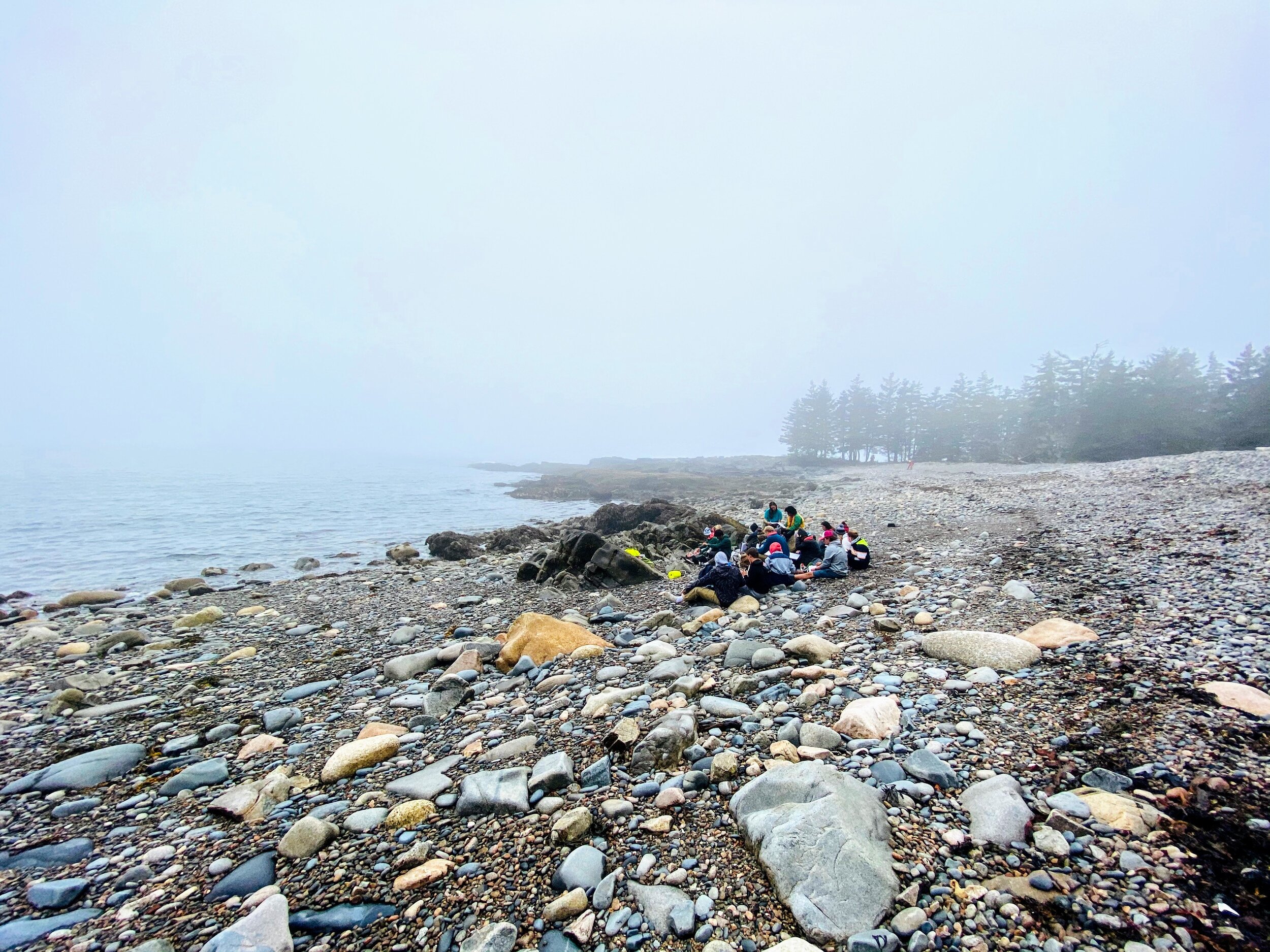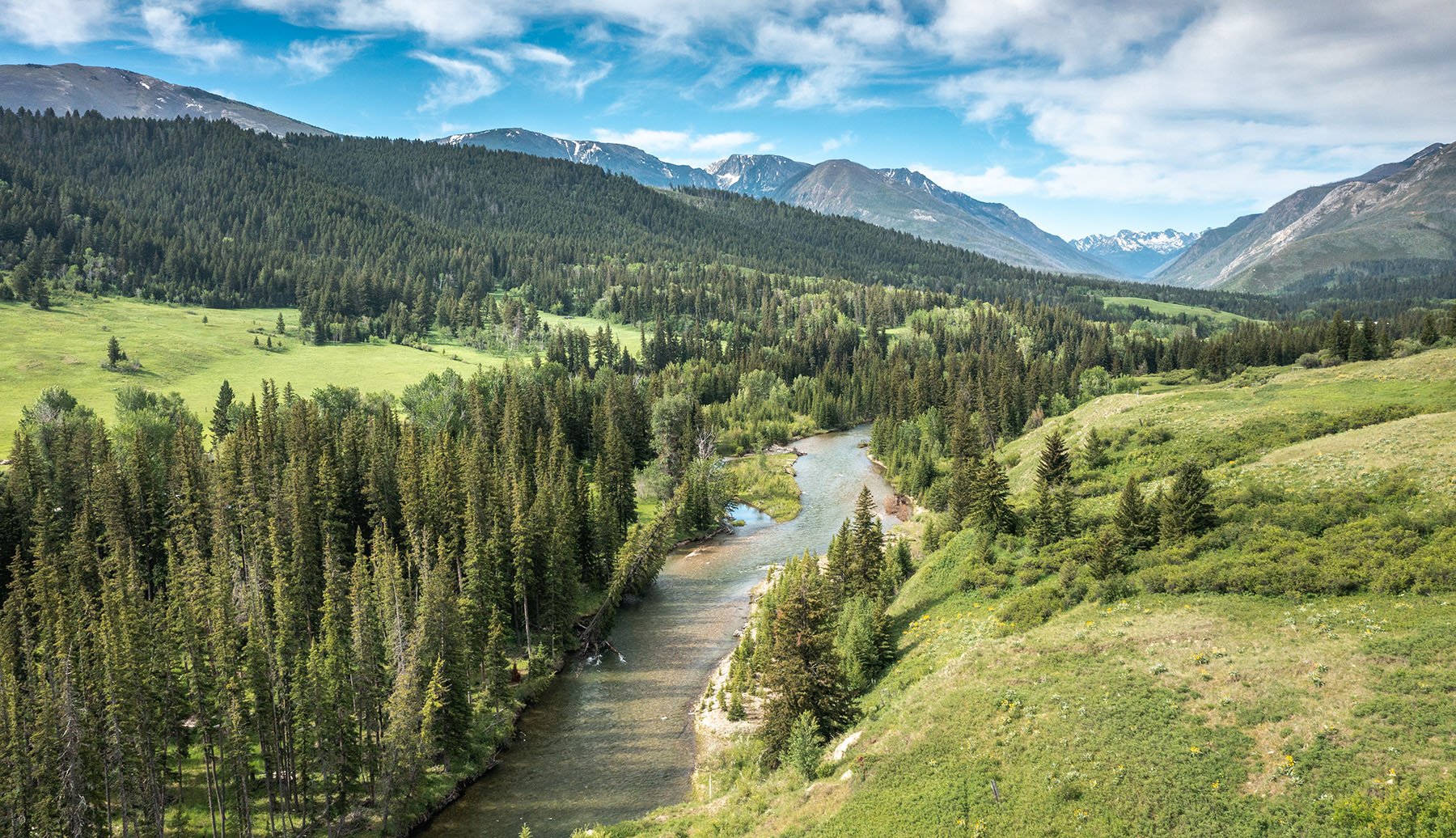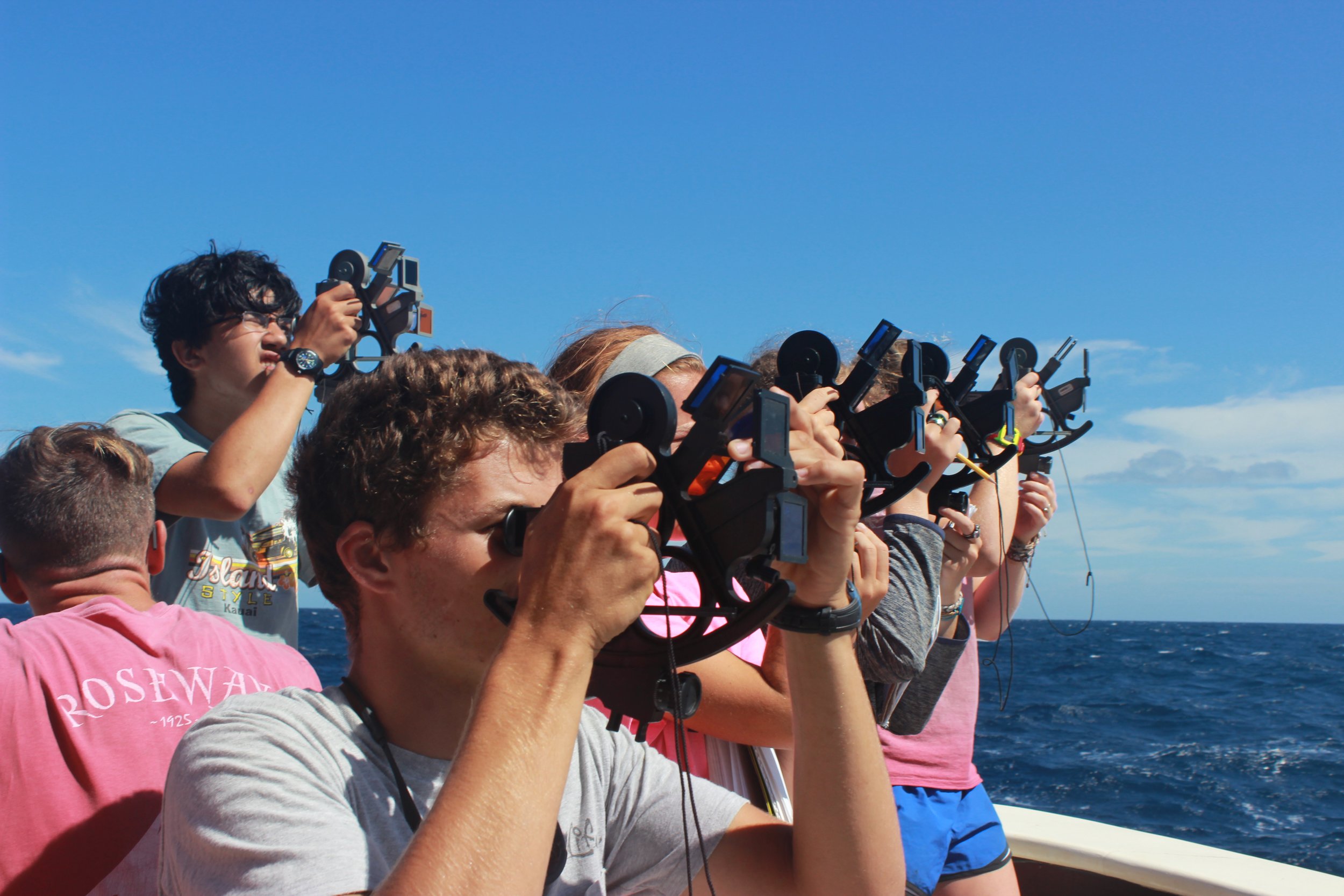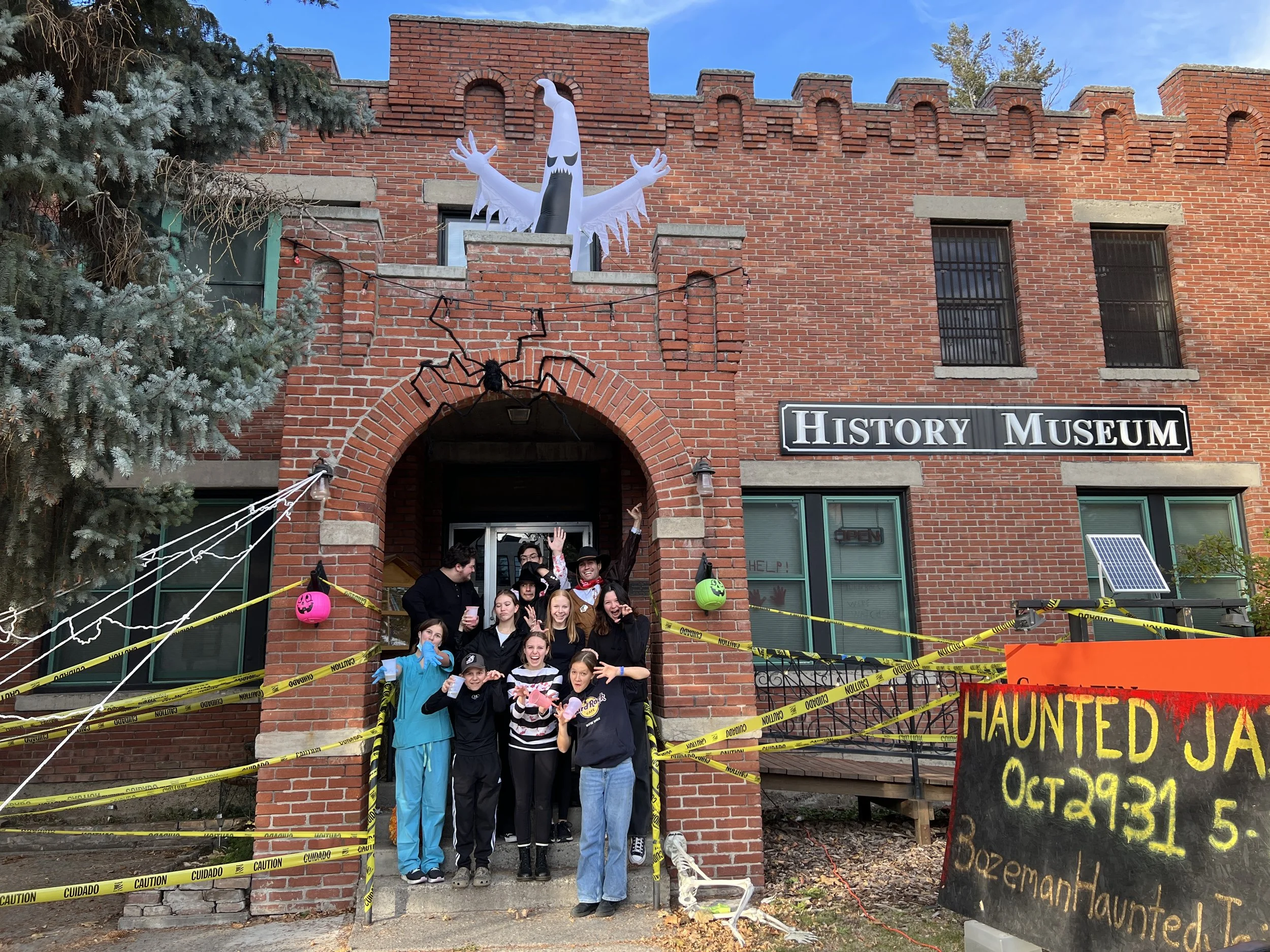
Our students tackle
planet-sized problems and make a real impact.
Participate in real-world projects alongside visionary teens across three campuses where the only qualification is excellence.
We do not charge tuition.
Planet-level Design Thinking
At the Planet School, exceptional students spend their final two years of high school taking on problems like climate change, human civilization design, and economic inequality.
Examples of projects that students will work on include:
Launching a pop-up business in Detroit as they study economics.
Conducting oceanographic research while living aboard and learning to navigate a tall ship.
Managing a working farm while investigating our global food production systems.
Constructing a building as part of a course on urban planning.
During their two years at the Planet School, students move between three campuses in Michigan representing three major ecosystems, giving them a planet-sized perspective:
Water: Sailing vessel on the Great Lakes and Atlantic Ocean.
City: Neighborhood campus in the city of Detroit.
Wilderness: Rural, undeveloped plot of forest in Northern Michigan.
Explore, Design, Build, Govern
The goal of the Planet School is to equip students with the academic, interpersonal, and leadership skills to think about, discuss, and take action on “planet-sized” problems. This happens through hands-on, experiential learning that is unparalleled in its investment in student agency and curiosity.
Students work alongside world-class faculty to operate and expand the school’s physical and human systems—the Planet School itself is affected by the decisions students make. This is particularly true on the rural campus, where students have the opportunity to design and build a community from scratch.
We have observed that teenagers are, generally, undervalued in terms of what they can contribute to our societies. Planet School students have usually spent their youth as change-makers within their communities, leaders amongst their peers, or have participated in extracurricular activities that simulate real world systems (e.g. Model UN). The Planet School gives these students the opportunity to spend their final two years of high school amongst like-minded visionaries who are ready to stop simulating and start building the future they dream of inhabiting.
Three Campuses, Unlimited Possibilities
Great Lakes and Atlantic Ocean
Students begin their Planet School experience by sailing through each of the five Great Lakes conducting research on the largest freshwater ecosystem on Earth. This voyaging component acquaints students with the self-sustaining community that is a sailing vessel and provides unparalleled opportunities for leadership and team work, preparing them for their forthcoming work on the land-based Planet School campuses.
Students return to the sailing vessel before graduating to navigate the ship from the Atlantic Ocean back to Detroit via the St. Lawrence Seaway. This culminating voyage tests everything they have learned, since they will need to complete it without the aid of GPS.
City of Detroit
Detroit is at a remarkable moment in its history. Once one of America’s pinnacle urban centers, Detroit filed for bankruptcy in 2013 and has since entered a renaissance period of regrowth. But that growth is not evenly distributed and there is still much to be done. As a result, students will be able to play a critical role in affecting the trajectory of their neighborhood and the city overall.
Students will work with existing community members to identify challenges and build solutions. Revitalizing dilapidated buildings, launching a pop-up business, and working with local government will define initial student work on the Detroit campus. When students return to the Detroit campus in their senior year, they will utilize a space they rehabilitated to launch a permanent business that meets a community need and fix a dilapidated home for a new family to occupy.
Time in Detroit is also a chance to study social and economic inequality and concepts like justice, human rights, and access to opportunity. Since the Planet School does not charge tuition, students will immerse in these topics as both scholars and practitioners, reflecting on how their own work can be a part of the solution to these enduring human challenges.
Rural Forest in Northern Michigan
Our rural campus is the ultimate venue for creativity. Starting with a relatively barren plot of forested land in the Planet School’s inaugural year, students work alongside world-class faculty to operate and expand the school’s physical and human systems. Consider one of our prompts for student inquiry:
Pretend you are the first humans to land on a new planet. Knowing everything we as humans have learned up to this point in time, how would you build this new civilization from scratch?
Class topics enable the hands-on construction and operation of the school community:
Study Environmental Science as part of running the Planet School’s agriculture operation, which includes greenhouse, hydroponic, aquaponic, and conventional gardening.
Plan, survey, and then add a new building (or two) to the Planet School’s campus as part of our Engineering course.
Explore world cultures and governance systems to help invent a new “Planet School Culture” as students collectively make decisions about the school’s operations in our Government course.

Together, the three Planet School campuses encourage bold, imaginative thinking. Students finish high school with a sense of real accomplishment, ready to serve as agents of positive change in their communities. Their sense of identity and their place in the world will reach a maturity that conventional schools simply cannot match.
Timeline
2020-21
//SV Rose
We sailed a 42’ sailboat from Lake Huron to Nova Scotia and then south to Key West to demo the route of our future voyages.
2022
//Haunted Jail
Ten students designed, built, and ran an astonishing haunted house in an old county jail that raised over $22,000 in a weekend of sold-out performances.
2023
//Secret Workshop
We created a teen-managed youth space in the back of a museum that was open in the evenings via a secret alley entrance.
Since 2020, we have been running various prototype projects meant to test elements of the Planet School’s forthcoming program, mainly our curriculum, business plan, and student experience.
As of January 2024, we are finalizing our curriculum design and institutional partnerships before launching a capital campaign later this year. This will be followed by land acquisition in the Great Lakes region, finding our sailing school vessel, and hiring additional faculty.
We expect to welcome our first class of high school juniors in the fall of 2026.
We Have a Podcast!
Follow the journey of launching The Planet School. We talk to experts in various fields about what it takes to start a school in today’s education landscape.

A Remarkable Education Should Be Affordable
The rising cost of education across the board is one of many contemporary social dilemmas we collectively face. Elite independent schools usually cost over $30,000 per semester and, as a result of this and other factors, lack diversity. While many programs offer financial aid, I know from personal experience that the prospect of having to overcome an admission hurdle and a financial hurdle can be discouraging to great applicants.
I grew up in low-income housing, was on free or reduced lunch programs throughout grades K-12, and was raised by an amazing single mother who ran her own one-person house cleaning business. It was her unwavering support that pushed me to apply to a school like Brown University, which I was only able to attend because I also received a full scholarship. I wonder, though, how different Brown’s student population might look if tuition fees were removed—if every potential applicant facing adversity felt they had a real shot.
The Planet School is creating a new business model for independent education that moves away from tuition. I want any talented student, regardless of circumstance, to see themselves as belonging at the Planet School. Inclusivity in all forms is a core value in our DNA as an institution.
So are you a teen with big plans? Then come dream, research, and build the future of human civilization with us.
-Thane Richard, Founder






















